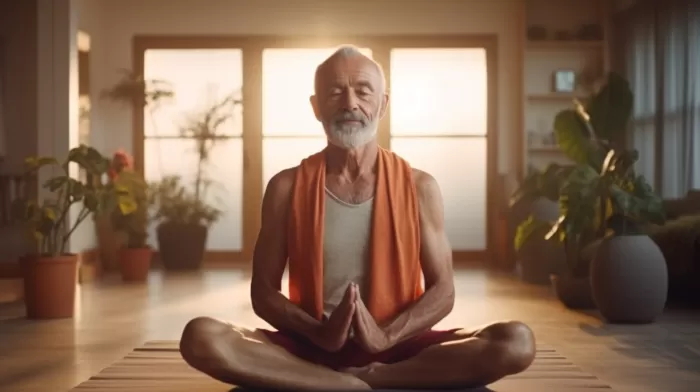It turns out that older people tend to be happier than younger adults, and it’s all about how we choose to look at things. Research by a scientist at Northeastern University, Derek Isaacowitz, reveals that older people are generally better at avoiding the negatives in life and instead, focusing on the positive. It sounds simple, but his research demonstrates that younger people don’t generally do this, paying more attention to negative images and hurtful events. So, how can we learn from our older counterparts, and enjoy a significant boost to our health and happiness?
The Power of Positive Looking
Isaacowitz points out that older people seem to be better at controlling and improving their emotions because they take their eyes off the negative and focus on the positive. He calls this “positive looking.” There’s a strong relationship between positive looking and mood, and good attentional abilities, combined with positive looking patterns, can significantly improve how we feel.
Our mood can be an incredible healer and protector of our health. Many ancient healing techniques, including breathing and relaxation methods, improve our outlook and mood, ultimately protecting our health. However, there’s one popular technique that can be taken to the next level for even better health benefits: yoga.
Taking Yoga to the “Hot” Level
Yoga is well-known for its numerous health benefits, such as easing stress, improving flexibility, and increasing muscle strength (Mayo Clinic). However, you could further enhance these benefits by practicing “hot” yoga. This is yoga practiced in a humidified environment with a temperature of 95°F or warmer. Research shows that even one hot yoga session can provide greater physiological and mood benefits than regular yoga.
Keeping Your Cool
One of the primary benefits of hot yoga is its impact on the autonomic nervous system (ANS). The ANS controls essential functions such as heart rate, digestion, and body temperature. Hot yoga helps balance the sympathetic (fight or flight) and parasympathetic (rest and digest) branches of the ANS. The heated environment helps increase the flexibility of muscles, joints, and connective tissue. The humidity helps your body relax and enhances the stretching process.
Reducing Stress and Anxiety
The combination of heat, humidity, and movement in hot yoga helps to promote relaxation and reduce stress and anxiety. A study published in the Journal of Clinical & Diagnostic Research found that practicing hot yoga significantly lowers cortisol levels, which is also known as the “stress hormone.” A decrease in cortisol levels means reduced stress, thereby improving overall mental and emotional well-being.
Increased Cardiovascular Health
Hot yoga helps to improve cardiovascular health by conditioning the heart. The heat and humidity contribute to an increase in heart rate, which results in a more efficient cardiovascular system. This leads to lower blood pressure and improved circulation throughout the body.
Enhanced Mood
The practice of hot yoga also helps release endorphins, which are natural mood elevators. Endorphins create a feeling of happiness and an increased sense of well-being. Additionally, hot yoga classes often focus on mental and emotional aspects of the practice, such as positive thinking, gratitude, and self-compassion. This can strengthen your mental resilience and contribute to a more optimistic outlook on life.
Detoxification
The increased sweating that occurs during hot yoga sessions helps to detoxify the body. Sweating helps to expel harmful toxins, chemicals, and other waste products that can accumulate in our bodies and lead to various health issues. By promoting the elimination of these harmful substances, hot yoga supports a healthy immune system and overall improved health.
Embrace the Heat for a Balanced Life
Both mood and health are powerfully connected, and by enhancing our mood, we can also significantly help our physical well-being. Incorporating hot yoga into a regular routine is one way to do this. With the potential for an improved outlook, reduced stress, increased mental resilience, and better overall health, why not take a page out of the positive looking playbook and take your yoga practice to the next level?



